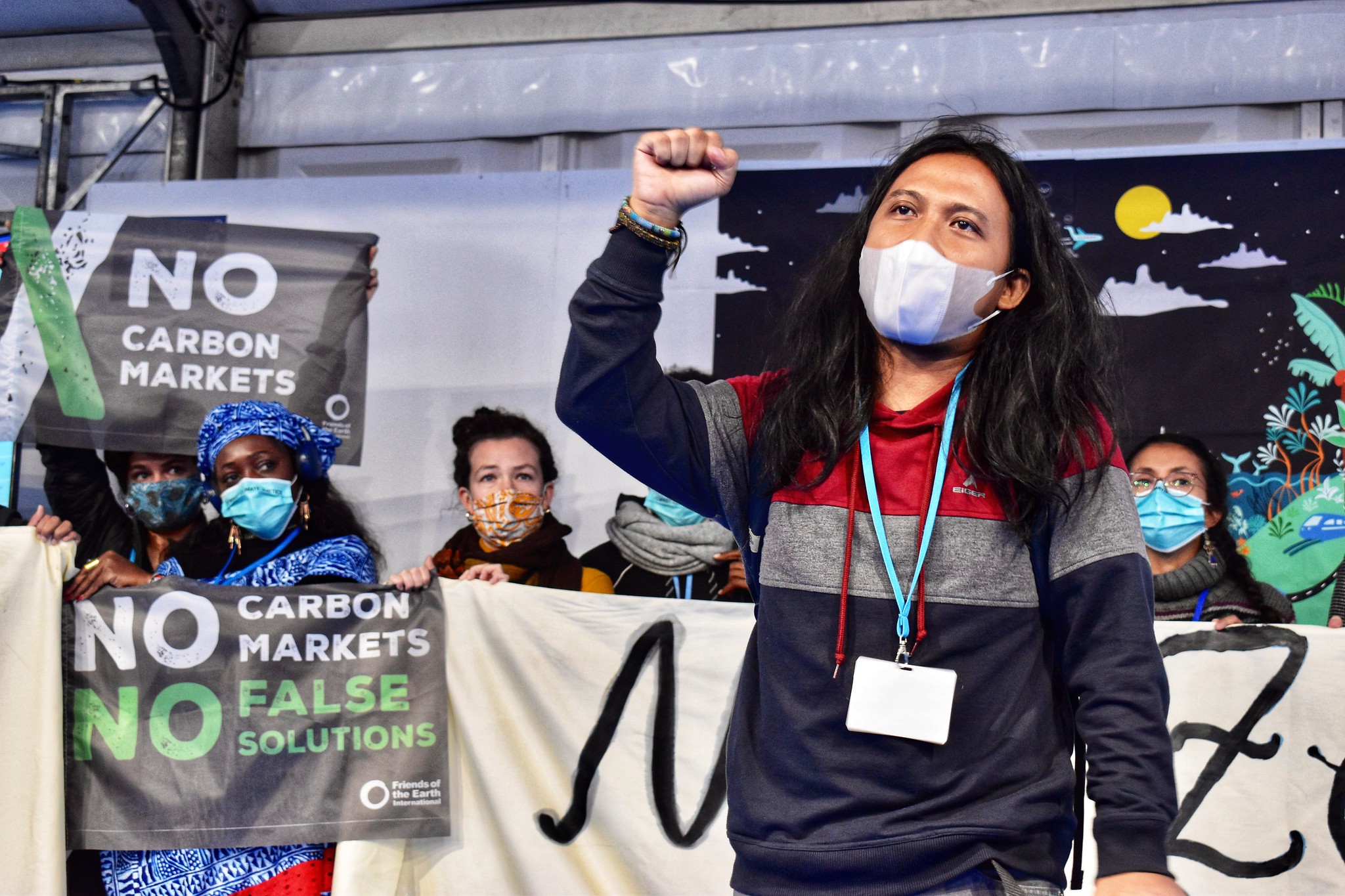
Desperate Dart ignores local democracy in unconventional gas scheme
Commenting on the news that Dart Energy has appealed to the Scottish Government for non-determination of its application for 22 coalbed methane wells at Airth, near Falkirk, Friends of the Earth Scotland Campaigns Co-ordinator Mary Church said:
“This is a clear sign that Dart is so desperate for a decision that it is unwilling to let the proper democratic processes take place within the Councils.
“The Councils are quite reasonably waiting for the results of a technical study they have commissioned but Dart clearly too scared of many unanswered questions over unconventional gas wait for the answers to come back. The local community have been very vocal in their opposition to Dart’s plans with two thousand objections to date. It’s right that the Council are taking their time to decide the application when the potential risks of it going ahead are so high in terms of climate and public health.
“The Scottish Government has clearly stated that Scotland does not need unconventional gas to meet our energy needs and new draft planning guidance puts even more barriers in the way of these sorts of developments.
“It’s increasingly clear that the public health and environmental risks of unconventional gas drilling are inherent and impossible to eliminate. That’s why we are calling for a ban and urge the Scottish Government to turn this damaging application down as soon as possible.”
Notes
1. Falkirk and Stirling Council’s have commissioned consultants AMEC to look at the technical aspects of the application including:
geological instability drawing water from the wider area, not just coal seam dewatering local aquifers fugitive methane emissions
The Councils asked Dart for more time to undertake this technical review and decide the application, which the developer failed to agree by the deadline 7 May.
2. To add to Dart’s troubles, the company’s share price continues to stay low despite major job cuts: “Controversial gas developer Dart Energy fights to stay afloat” http://www.foe-scotland.org.uk/node/1574 and http://www.asx.com.au/asx/research/companyInfo.do?by=asxCode&asxCode=dte
4. The Sunday Herald recently revealed that the quality of gas extracted from Airth is so poor that it might require three tankers of propane a day to bring it up to necessary standards to feed into the grid. http://www.heraldscotland.com/news/home-news/burning-issue-poor-gas-quality-could-end-scots-drilling-plan.20723754
5. Dart Energy has pulled out of its Australian ventures following a ban on all unconventional gas activity – not just hydraulic fracturing – within 2km of residential areas introduced by the New South Wales Government. http://www.resources.nsw.gov.au/__data/assets/pdf_file/0008/458018/TOUGH-NEW-RULES-FOR-COAL-SEAM-GAS-ACTIVITY.pdf
6. A study by the Queensland Government found that 44% of the 58 wells tested in 3 fields were leaking http://mines.industry.qld.gov.au/assets/petroleum-pdf/tara_leaking_well_investigation_report.pdf Research by the Southern Cross University in Australia that found gas was leaking at around 3.5 times the level expected in CSG fields http://www.scu.edu.au/news/media.php?item_id=6041&action=show_item.
7. Methane is a highly potent greenhouse gas that over its short lifetime is over a hundred times more damaging to the climate than carbon dioxide. Research indicates that unconventional gas could be worse in climate terms than burning coal because of methane leakage from gas fields. Seehttp://www.eeb.cornell.edu/howarth/Howarthetal2012_Final.pdf from Cornell University and http://www.nature.com/news/methane-leaks-erode-green-credentials-of-natural-gas-1.12123 from the National Oceanic and Atmospheric Administration (NOAA) who found that 9% of total gas production at a field in Utah was leaking into the atmosphere.
8. An investigation by a GP in early 2013 of 38 households in close proximity to coal seam gas wells in Tara, Queensland, found that 58% of residents reported definite adverse health effects related to gas drilling and a further 19% were uncertain. Symptoms include breathing difficulties, rashes, joint and muscle pains, nausea and vomiting, and spontaneous nosebleeds. See http://d3n8a8pro7vhmx.cloudfront.net/lockthegate/pages/49/attachments/original/1367333672/2013-04-symptomatology_of_a_gas_field_Geralyn_McCarron.pdf?1367333672
9. Bans and moratoria around the world
France: A nationwide ban on fracking Switzerland: A moratorium on fracking was introduced in the canton of Fribourg Germany: Moratorium in Northrhine-Westphalia on fracking. Lower Saxony likely to do the same. Bulgaria: Government banned fracking Czech Republic: A moratorium on fracking, considering outright ban Spain: Cantabria banned fracking, La Rioja is also currently considering sameNetherlands: Moratorium on unconventional fossil fuels Denmark: Moratorium on fracking Quebec: A moratorium on fracking United States: Vermont banned fracking, and New York has moratorium New South Wales: ban on any coal bed methane activity within 2km of residential areas, and within critical industry clusters such as winegrowing areasIreland: 2-year moratorium on fracking
10. Friends of the Earth Scotland is:
* Scotland’s leading environmental campaigning organisation * An independent Scottish charity with a network of thousands of supporters and active local groups across Scotland * Part of the largest grassroots environmental network in the world, uniting over 2 million supporters, 77 national member groups, and some 5,000 local activist groups – covering every continent.
www.foe-scotland.org.uk
